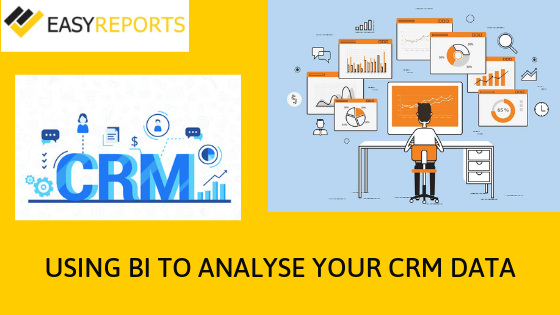September 20, 2019
BI and CRM are complementary to each other and for better operations, organization’s requires simultaneous working of both the tools.Customer Relationship Management (CRM) is one of the most proven and yet effective ways to maintain a consistent level of customer service for customers. This system gathers and consolidates raw data from customer interactions into a single database. CRM combines the data with a BI solution to deliver faster decision-making. In this blog, we will explore how BI and CRM work together to improve business efficiency.
CRM is very useful in increasing revenue and cost controlling of the business. It is an effective yet powerful tool in improving your organizational managerial and productivity as well as overall efficiency by streamlining all the relevant business activities in one single database.
There are some common types of Analyses that users can do with CRM data:
- Insights for Marketing Strategy
- leads/contacts
- marketing campaigns
- Insights for Sales Operation
- Accounts & Opportunities
- Opportunities & Contacts
- Insights for Customer Onboarding & Success
- Accounts
- Support Cases
Business Intelligence should help inform the CRM strategy of your organization. CRM is not just a magic black box that will allow users to develop create customer touchpoints automatically, but it is just like a toolset, and like all other toolsets, it is only as good as how you customize it to suit your business needs.
Insights are only as good as the data from which they are derived. While BI and CRM solutions have reporting capabilities, they differ in their capabilities to source data. A CRM system is capable of accessing data stored only in connected databases. If data is warehoused externally, the data cannot be used in CRM reporting. In contrast, BI collects your raw data from multiple sources and creates a central repository from which users can get the information they need. Combing BI with a CRM system provides companies with a single source of the truth for comprehensive reporting and clear visualizations in the form of charts, graphs, maps, and more.
Daily an organization generates a wealth of data. Once the user integrates a solution, you will be able to reap the greatest benefit by creating a custom dashboard. Your dashboard enables you to continuously monitor your metrics and see the impact of your processes in real-time.
Popular CRM Software: HubSpot, Zoho & More
HubSpot, ZOHO, etc. are some of the popular CRMs used across business organizations.HubSpot CRM can track customer interactions automatically whether they are in an email, across social media, or on a call. It even allows sync with Gmail or Outlook, and capture every call, email, or meeting as and when it happens. Users can sort deals; either won or lost, appointments scheduled, and contracts sent over during any time period, and track performance against quotas you set. You can even sort deals by name, owner, amount, or stage with custom filters for actionable information within a fraction of time.
CRM benefits:
Here is a list of CRM benefits that all organizations must follow for better and optimized results;
- CRM provides a 360-degree view
- CRM optimizes the organizations marketing strategy and makes service more credible
- Supports cross-selling and upselling efforts
- It improves your relationship with current customers
- Turns customer data into revenue intelligence
- Identifies and removes inefficient practices
- Makes customer information available to all agents
- Streamline invoicing
- Tracks the performance of your agents
- It manages your social media activity
To know more, visit our website for more www.easyreports.in
